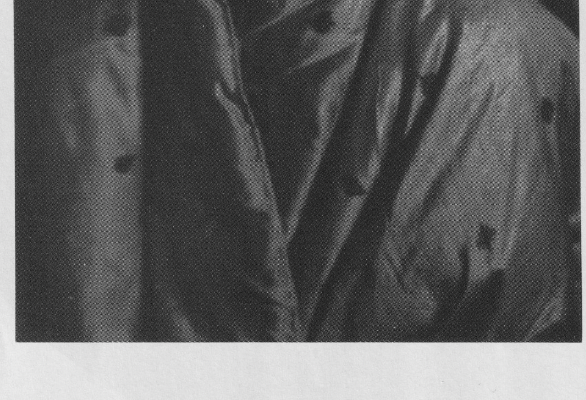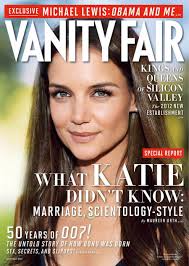Original Publication: Vogue, February, 1982.
This month, a celebration of the real American Way – diversity
The true battlefield in the fight for the hearts and minds of America is the TV screen. Presidential campaigns, for all practical purposes, are no longer waged anywhere else. The values of a people can be cumulatively gauged from its thousands of little half-hour episodes. Two men who understand this very well are Norman Lear, the most successful producer in television history, and Jerry Falwell, top TV evangelist of the New Right and president of Moral Majority, Inc. Their views are diametrically opposed and television has become their electronic dueling ground.
Norman Lear has made a career of being daring and controversial. At the same time, he’s always made us laugh, defusing the controversy with humor. In his many series, he has aired some of the most sensitive subjects in American family life – from the bigotry of Archie Bunker in All in the Family, to the question of abortion on Maude, to the first divorced mother at the center of a successful sitcom, One Day at a Time. Mary Hartman, Mary Hartman has never been equaled as a satire on the life portrayed in soaps. Jerry Falwell considers many of Lear’s programs “antimoral” and “filth.” But that doesn’t vex Norman Lear so much as his belief that Falwell and his colleagues are opposed to the traditional American belief in a pluralistic society.
As a result, Lear is now devoting his considerable energies to what promises to be a royal battle. With a number of prominent clergymen he has founded People for the American Way, a nonprofit, tax-deductible, nonpartisan membership organization to combat what he feels are the political excesses of the electronic evangelists. It didn’t take long to recognize him as a formidable foe. Last October, Jerry Falwell named Lear “the #1 enemy of the American family in our generation.”
Lear earned the title because he contends that a great deal of the religious programming on television is captured by fundamentalist evangelicals who, in the name of scripture, use their air time to denounce political issues ranging from Social Security to the progressive income tax. Ironically, he first started to watch these clergy purely as research for a satirical film he was slated to write and direct for Universal – Preacher.He soon became upset at what he felt was their strident rigidity towards those who disagreed with them. Then, as he watched them advocate censorship of school textbooks and distribute “moral report cards” – telling their followers which politicians are “good” Christians and which are not – he became so alarmed he abandoned satire for direct action.
He wrote a sixty-second paid television spot to be delivered by a worker in a hard hat. It began: Hi. I have a problem. I’m religious and I come from a religious family. But that don’t mean we see things the same way politically. Now here come certain preachers on radio and TV and in the mail trying to tell us on a whole bunch of political issues that there’s just one ‘Christian’ position and implying that if we don’t agree, we’re not good Christians . . .”
The spot ends: “That’s not the American Way.”
Lear wanted to make sure he had the authority to air such a spot. So he went to some of America’s most distinguished clergymen, including the bishop of the Episcopal Diocese of Massachusetts, a bishop of the United Methodist Church, the stated clerk of the General Assembly of the United Presbyterian Church, and the president of the University of Notre Dame, Father Theodore Hesburgh. According to Lear, “They were all very concerned. They had been writing a great deal back and forth to each other and in their publications, about what my commercial represented, but they were not reaching a large audience.” Lear found that the clergymen’s anxiety went even beyond his own. “I was concerned what this was doing to the fabric of American life. Their concerns were also scriptural. That’s how we happened to join forces and this organization was born.”
In a little over a year, People for the American Way has grown to a membership of sixty-five thousand and an advisory board of forty outstanding Americans, both clergy and laymen, both conservative Republican and liberal Democrat. It has produced four other public-affairs TV spots using such celebrities as Goldie Hawn, Carol Burnett, and Muhammad Ali interspersed with ordinary citizens discussing everyday subjects on which they have differing opinions – how they like their eggs or what music they prefer. The tag line is always that freedom of thought is “the American Way.” The spots have been carried on nearly three hundred local TV stations across the country and PAW would also like to produce a ninety-minute show, “Religion and Politics in America,” on which their board members will debate members of the Moral Majority.
But the fear of having to grant equal time to the Moral Majority is why Lear thinks his spots have not been run as yet by two of the three major networks. “The operative word is fear,” says Lear, who advocated paid advertising of every stripe on television. “After our spots were carried by the first sixty stations, the next sixty were a lot easier and so on.” But his group does more than just produce programming. People for the American Way also has set up a Speakers Bureau.
“On any given night, People for the American Way will have fifty or sixty people around the country – professors, students, doctors, lawyers – speaking on this issue and others debating Moral Majoritarians,” Lear says. “In Richmond, Virginia, an in Los Angeles, citizens are beginning to monitor the content of TV ministers to see when they get political. Then, in a quiet, non-legal, citizenlike way, they go to the local stations to show how these ministers are proselytizing for X, Y, or Z issue. In some places, they’ve gotten equal time.”
The group’s most dazzling production ever will take place this month on Washington’s Birthday, February 22. ABC will air I Love Liberty, a two-hour special of entertainment, speakers, and drama which will be chaired by none other than Gerald Ford, Lady Bird Johnson, and Walter Cronkite. According to Lear, the show will be a celebration of the turmoil that has always been a fact of American existence. “We were born in turmoil. Now we want to celebrate that turmoil and affirm who we are. We want people to understand that the way for people to improve things – in good times and bad – is to participate.”
Norman Lear wants people to feel as he does. “Call me a liberal or a moderate or a progressive,” Lear says, “but it’s my flag too!”
This article is typed from the original material. Please excuse any errors that have escaped final proofreading.


